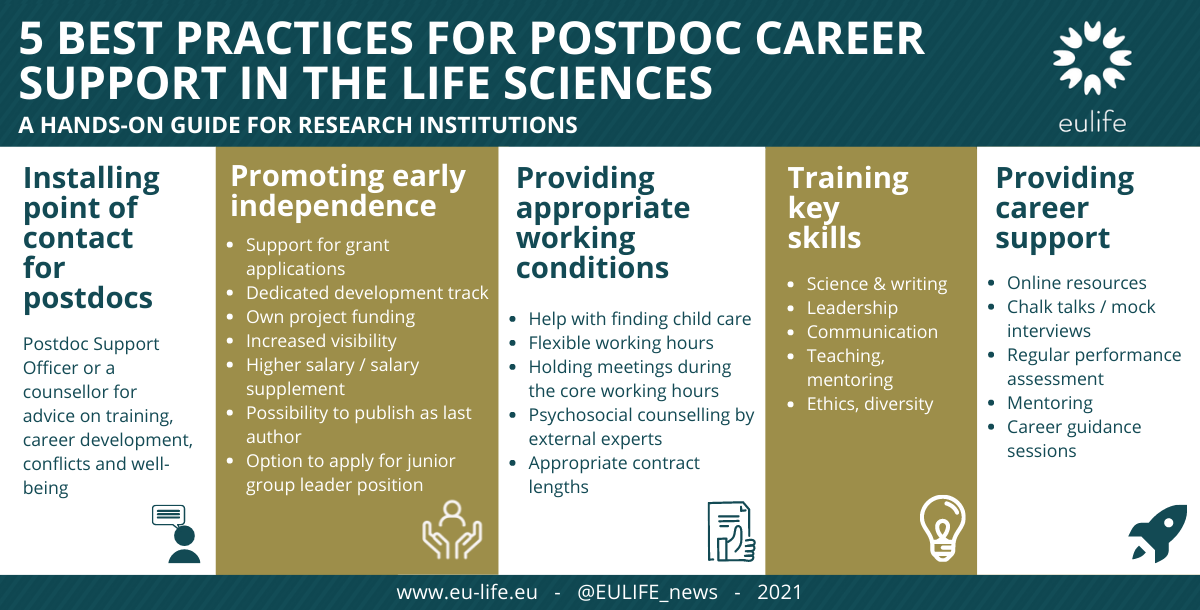How can research organisations support postdoc careers?
With the communication of the new European Research Area (ERA), the European Commission set new ambitious goals for Europe´s research and innovation landscape. One of ERA’s objectives is to boost an effective and creative knowledge market with a strong focus on skills, career development and mobility in research careers. To achieve this goal, and also for Europe to hold a leading position in research and innovation, it is of utmost importance to train and promote excellent, motivated researchers at all levels of their career.
As an alliance of research institutes advocating for excellent research in Europe, EU-LIFE produced the Best Practices for Postdoc Career Support in the Life Sciences - A Hands-On Guide for Research Institutions. This guide was made within EU-LIFE's Recruitment and Training Working Group and provides five best practices for postdoc career support in the Life Sciences, and is particularly aimed at Life Science research institutions.

With the goal to make the recommendations as relevant as possible for policymakers, we have published the policy brief Providing Career Support to Postdocs – Inspirations and Recommendations from the EU-LIFE Institutes. In addition, our commentary Time for change in research careers in the Science & Society section of EMBO reports will help reach the wider scientific community.
The intermediate career position of postdocs represents an especially delicate stage in the research career, with the largest challenges for professional progression. Therefore, we firmly believe it is essential to develop and promote the best possible environment for researchers to develop their potential into contributions to ERA and our society.
As part of our activities to support researchers’ career development, we held the webinar ‘Opportunities for and of postdoctoral researchers in Europe’ within the EU-LIFE Policy Webinar series, with the aim to debate key obstacles and drivers for research careers in Europe, in and beyond academia. It was attended by over 200 participants and the panel of experts included Apostolia Karamali (European Commission); Cecilia Cabello (ERAC); Mostafa Moonir Shawrav (MCAA); and René Medema (EU-LIFE). The Q&A session focused on topics such as the definition of a postdoc researcher, the transition from academia to industry and the different organisational models of research teams and how they impact the promotion of researchers.



